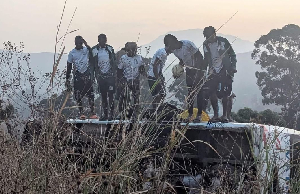Sceptics have over the years cast doubts on the ability or determination of Cameroon and the Biya regime to build a culture of democracy in the country. Yet, that criticism never dampened the resolve of the Head of State to pursue his goal of ensuring that Cameroonians imbibe basic democratic principles such as accepting the right to be different and even most importantly, accepting political challenge and defeat.
It was therefore not surprising that the Head of State opened his 2014 New Year message to the nation by focusing on political achievements in 2013 as one of the landmark events of the year. "Our political horizon is now very clear. It is time for serious and objective discussions on issues that are dear to Cameroonians which, as you know, are purchasing power, employment and living conditions." The putting in place of the Senate and above all the successful organisation of the election of Senators on14 April, Parliamentarians and Mayors on 30 September 2013, clearly indicated that many are becoming more conscious of the ongoing democratisation process in Cameroon.
That is also why the Head of State found it necessary to point out that the major shift in national politics henceforth ought to be the improvement of the living standards of the population, given that the worries earlier nursed over the political future of Cameroon are now a thing of the past.
When Elections Cameroon, ELECAM managed the Presidential election in 2011, many were still hesitant to confirm the ability of the young institution to handle more complex electoral processes. Consequently, the smooth manner in which the elections of 2013 were carried out could not be taken for granted any longer. In addition, ELECAM introduced the biometric voter registration process long demanded by political actors across the board in the country. Needless recalling the growing confidence that the system brought back to voters with the 75 per cent voter participation rate recorded at the Legislative and Municipal elections of 30 September.
While waiting for the Constitutional Council to also be in place, Cameroonians now have the legitimate right to hope for better days as those recently elected seek to fulfil their electoral promises. Of course, it is only through the application of well-intentioned political programmes that the living conditions of the people can be improved upon, thereby ensuring a better participation by the population in future elections.
Those who have often taken refuge behind the notion of hazy political institutions in Cameroon no longer have where to hide. Proof is the general endorsement that the elections had from all those concerned. The Head of State acknowledged this when he noted in his New Year message that; "The senatorial elections of 14 April and the legislative and municipal elections of 30 September took place in a calm and transparent atmosphere. All observers confirmed this fact and I believe that it reflects the maturity of the Cameroonian people who have understood that achieving social progress requires stable institutions and sound policies." Even those who doubted that Cameroonians will accept results of elections with fair play must be at a loss given the unanimity around the conduct of both polls last year. For now, not only is the political horizon clearer, but it is increasingly perceptible that Cameroon is certain about the way forward according to the provisions of the country's Constitution.
Opinions of Thursday, 2 January 2014
Auteur: Cameroon Tribune














